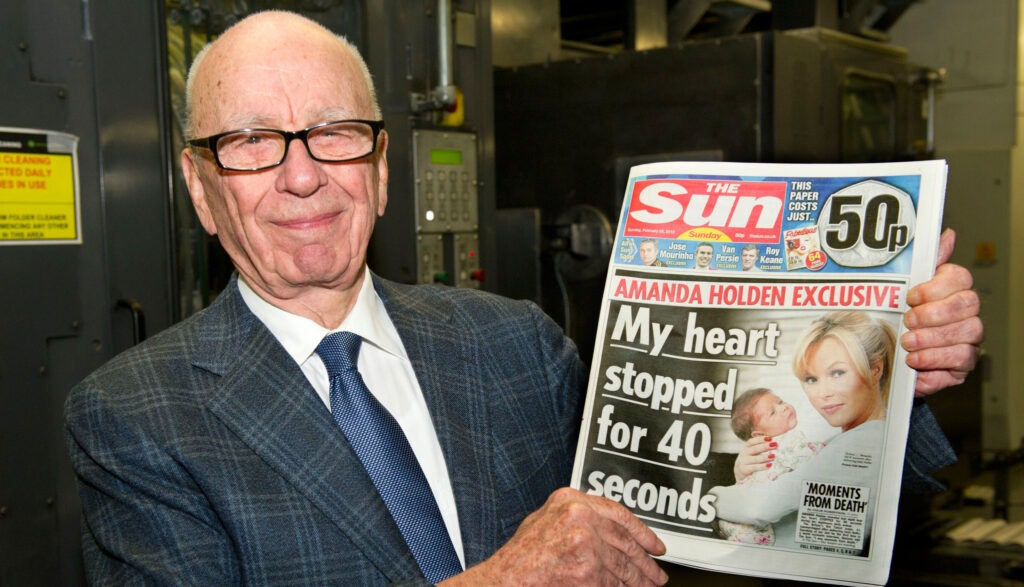
“I’m calling to celebrate the demise of Maxwell,” said Rupert Murdoch down the phone to me on the morning Robert Maxwell’s private effects were being auctioned in a bankruptcy sale. I acknowledged that Maxwell had been a frightful scoundrel, but that he was an unforgettable character and I didn’t like to think of him floating around dead in the Bay of Biscay. “I do,” was the reply. Murdoch, as I was often reminded over many years, was a fierce competitor.
Rupert Murdoch, who has retired after 69 years at the head of News Corporation, is indisputably the foremost and boldest media proprietor in history. Lord Northcliffe and William Randolph Hearst would have been contenders for that title in earlier times, but Northcliffe died before the radio, film, and television industries were seriously established, and while Hearst was to some extent a multi-media owner, he was a pioneer only in some aspects of the newspaper business. Both men confined themselves to their native countries. Hearst is better remembered as a fantastic, almost Oriental art collector, builder of the most magnificent residence in the new world, and fabled star of public curiosity, especially as the inspiration for Citizen Kane. Northcliffe, to the extent he is still remembered, (he died nearly a century ago), is chiefly recalled for the madness of his last years; a few months before he died, he phoned the editor of The Times, which he owned, shouted “Are you a shrimp or a brewer?” and hung up without waiting for an answer. Such eccentricities have never been ascribed to Rupert Murdoch.











